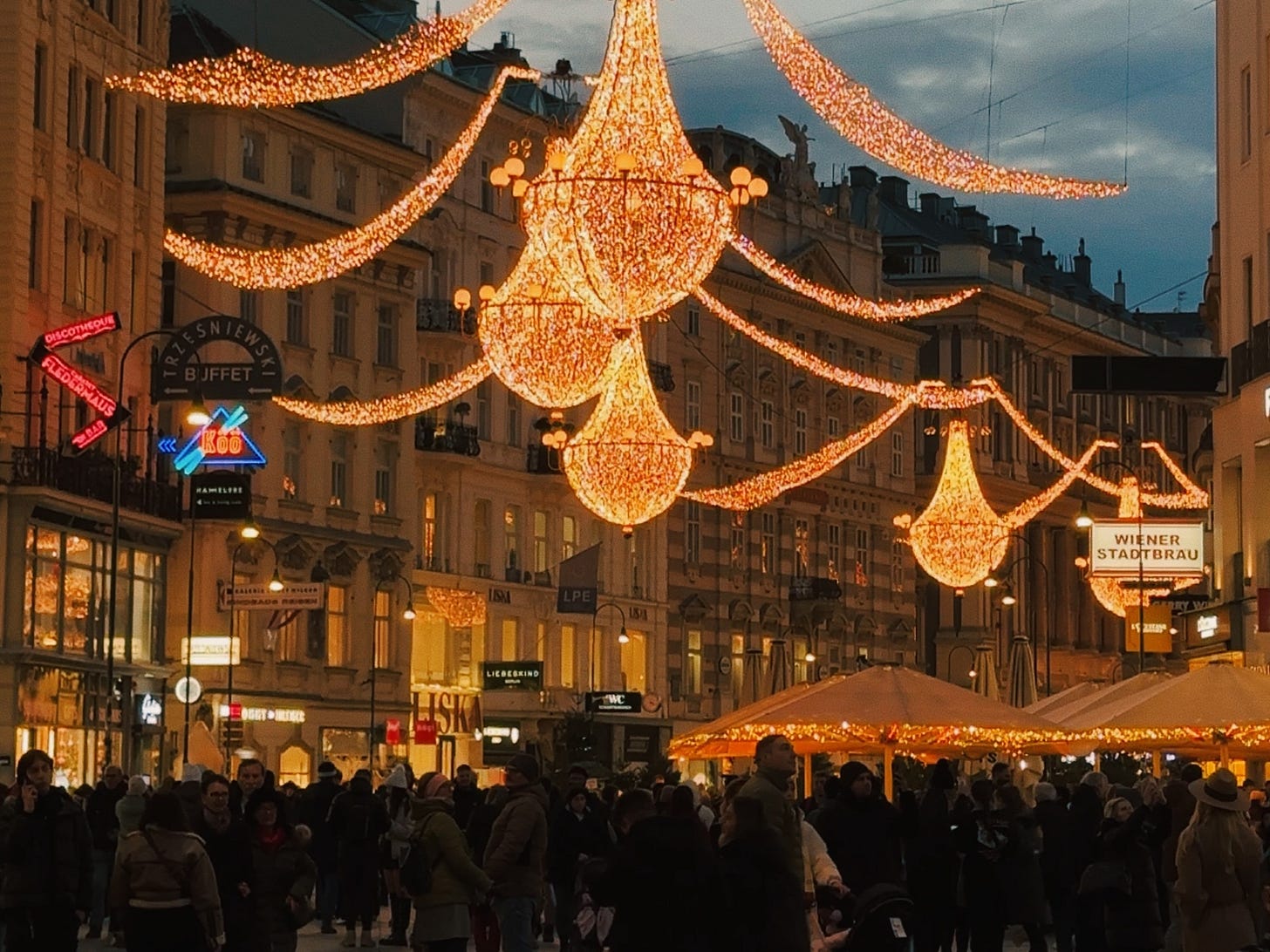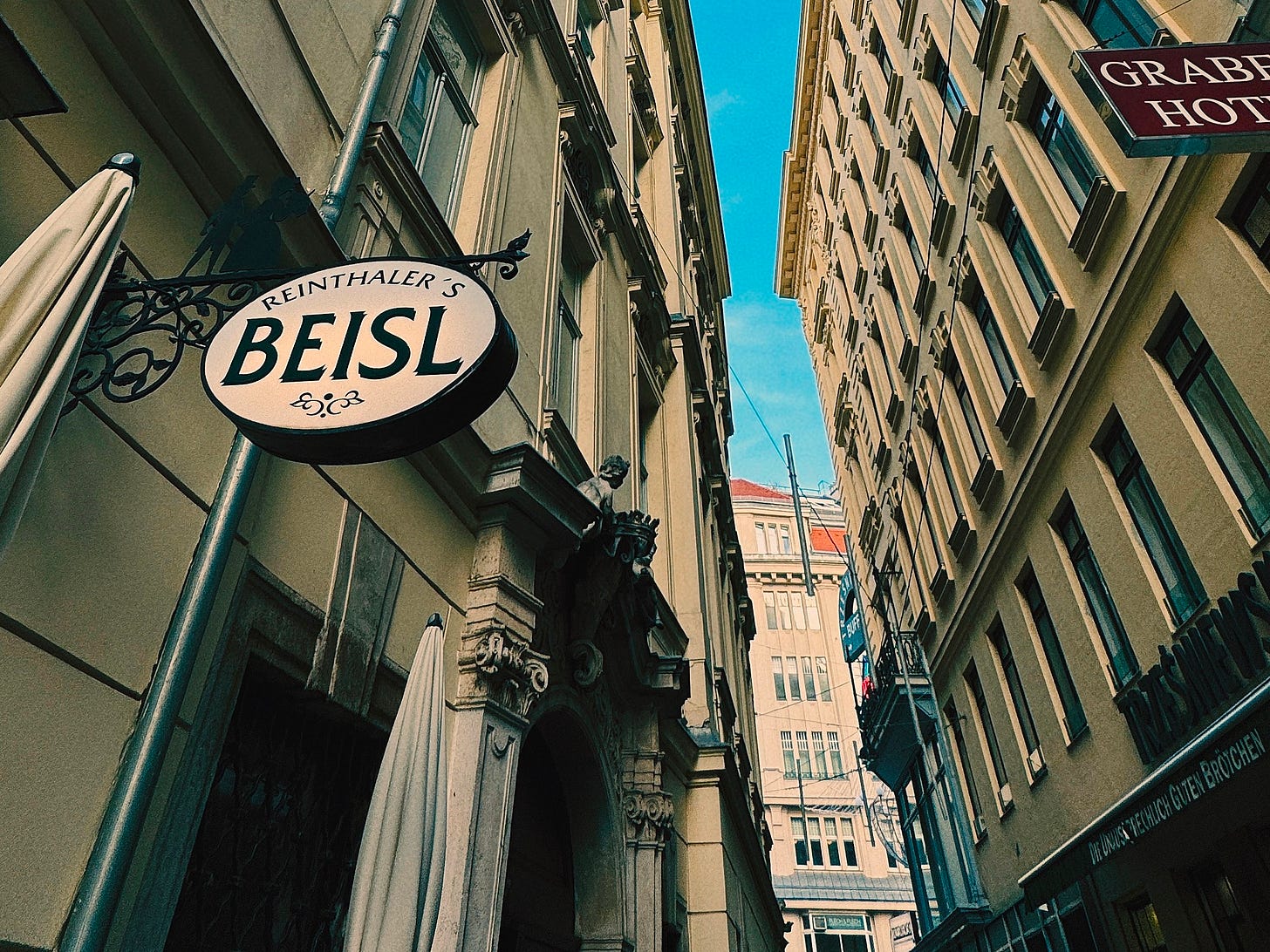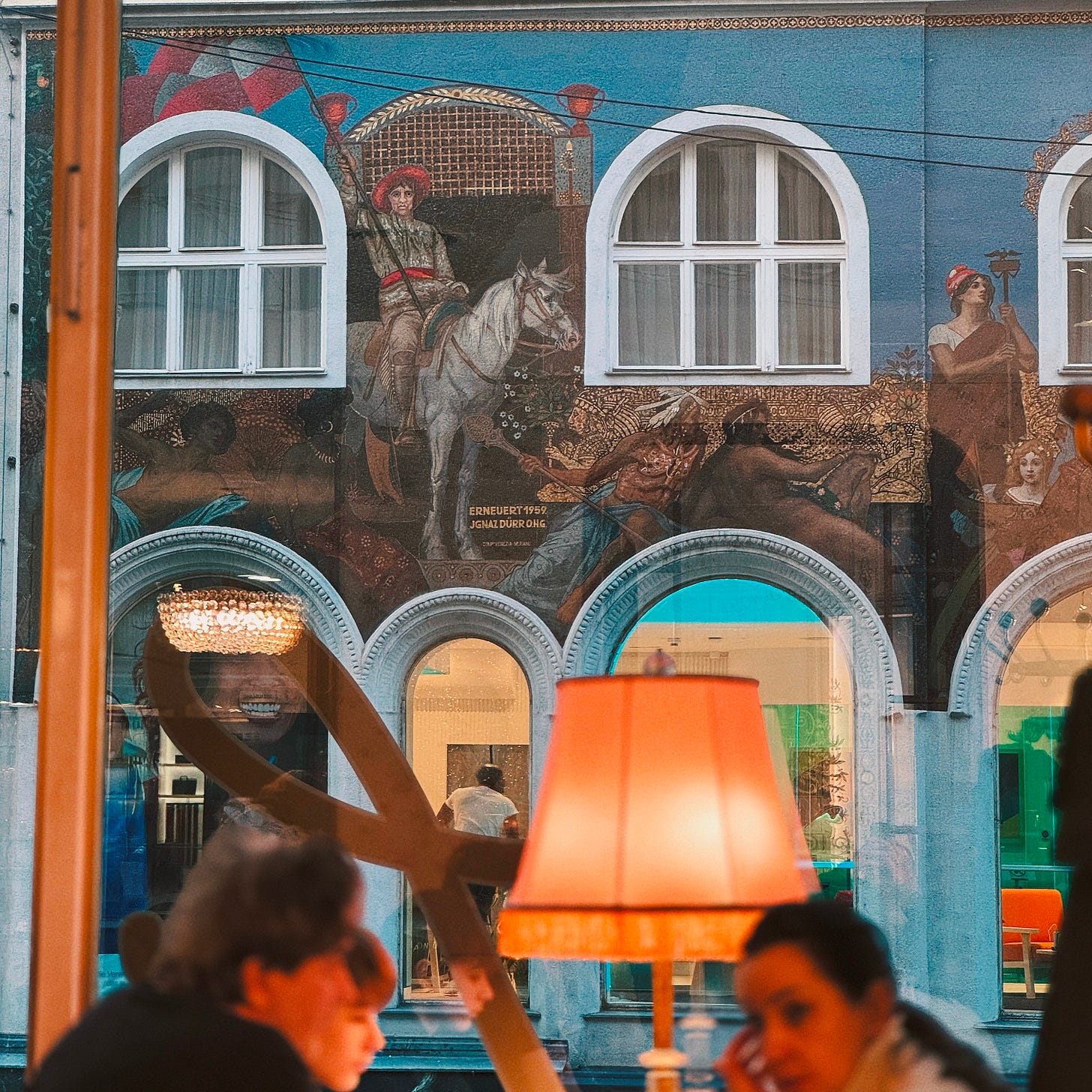The Old Woman in Vienna
An unexpected muse that I'll never forget
Vienna has always been one of my favorite cities in the world. Perhaps it’s the artful elegance in the air—it’s not only the home of Mozart, Klimt, and imperial palaces, but also a sanctuary for great thinkers, and for the café culture that cradled their ideas.
Strudel, timeless beauty, and intellectuals? Count me in.
As an American with a not-so-secret obsession with the many charms of old world Europe, I suppose falling in love with Vienna was inevitable.
And since I also seem to have a sixth sense for good restaurants, it was pure intuition that first led me to Reinthaler’s Beisl—a place I’ve returned to every time I pass through the city.
This time, only days before Christmas, I found myself with a few hours between a train and a plane. Whenever possible, I try to turn such layovers into my own special ritual: lunch in Vienna.
Stephansplatz, the city’s historic heart, was alive with Christmas market patrons, glowing lights, and the perfume of mulled wine, kürtőskalács (hungarian chimney cakes), and chestnuts roasting in the chill air.
Patches of gray afternoon clouds drifted across an otherwise bright sky, giving the scene a characteristically moody backdrop I’ve come to associate with Vienna.
Eager for my ritual, I walked from the metro station to Reinthaler’s Beisl and joined the line of lunchgoers outside. After a few minutes, the hostess asked if I would mind sharing a table with other solo diners, which was no problem for me.
She led me to a booth across from a young Brazilian traveler, and we struck up a cheerful conversation. Just as I was about to order my usual schnitzel, potato salad, and white wine spritzer, the hostess returned—this time with a very well-dressed old woman.
As the woman took a seat at our table, I felt a noticeable shift in energy, like the room itself leaned in to listen.
It wasn’t her age—I would have guessed late 80s, or even 90s. It was her presence.
In a chic and colorful form-fitting high-collared dress, dark tights, and elegant black boots, she came across as someone who was spiritually about 35 years old. Odd as that may sound, there was nothing contrived or try-hard about it—she was authentic.
Artful elegance, just like Vienna.
The three of us ordered our meals, and my curiosity grew.
I’ve always had a soft spot for older people, especially since I grew up so close with my grandparents. Wanting her to feel included at the table, I introduced myself, and the Brazilian traveler did the same.
At first, she spoke lightly, with the sharp wit and sparkle of someone far younger than her years. But as the meal went on, her stories deepened, unfolding like chapters of a novel.
She was Austrian-born, but her family fled during the war. She lived in the United States now and returned only occasionally—this time to spend Christmas with her daughter. Her husband, the great love of her life, had died in 1969 when he fell from a mountain while climbing.
The old woman spoke to us thirty-somethings with a quiet wisdom untouched by condescension, frankly acknowledging that that her life was nearing its final chapter—a jarring thought I didn’t quite know how to process.
Something about her moved me: her quiet conviction, her resilience, the timelessness of her presence. She felt like a kindred spirit, crossing my path to offer an unexpected spark of inspiration in one of my favorite places, just before Christmas.
Already, I felt a sadness that our time together would be brief.
When our meal ended, I suggested we walk together. I asked where she thought I should have a melange and strudel, and she offered to show me one of her favorite cafés, with lofty windows and a view of a historic mosaic.
As we approached, my heart clenched. I knew I would probably never see her again, and perhaps she felt the same. She hugged me warmly, wished me a good life, and I held back tears as I thanked her and wished her a Merry Christmas.
It felt poetic that in Vienna, a city of art and intellect, I should find my muse not in a museum, but across a lunch table.
Connecting with someone two generations older made me think about the past and the future all at once, yet somehow it drew me more deeply into the present. It made me think about the quiet forces that sustain us—conviction and resilience—and how they are often born from lives fully lived.
This stranger inspired me to move through the world with the same vitality and timelessness she embodied—simply by being herself, with conviction, and sharing her story, with resilience.
After we parted, I found a cozy corner of the café and tried not to weep into my strudel as I gazed out at the beautiful Mosaic of Kärntnerstraße. With its shimmering figures symbolizing the world’s continents, the mosaic is an ode to Vienna’s international spirit, and a rare fragment that endured when so much was lost in the war.
In that moment, I loved Vienna all the more. Just like the old woman and the mosaic, the city was scarred by loss, yet radiant. A testament to the endurance and beauty of the human spirit.
Whether at home or abroad, moments like these remind us:
Life itself is art, and meaning is what fuels it.
And sometimes, that meaning finds us in the smallest gestures—an open seat, a shared story, the brief but lasting imprint of a stranger.
I wrote about another meaningful chance encounter here: An Old Venetian Harbor and a Wink from the Universe.






